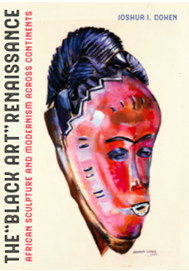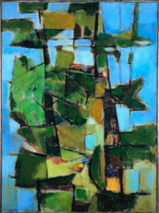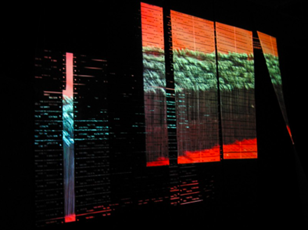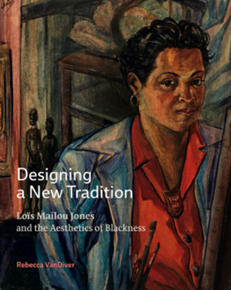CAA News Today
CAA’s Anti-Colonialism Solidarity Statement
posted Mar 02, 2022
On February 24, 2022, we witnessed the onset of military action and invasion of Ukraine. The College Art Association (CAA) strongly condemns colonialist aggression and oppression. We stand with our global colleagues, constituents, and friends who are affected by violence and threats to their safety as they struggle for peace and human rights. We recognize and hold firmly the inherent foundations for freedom, justice, and peace in the world. With peace as a central goal, we strongly condemn the deliberate destruction of heritage sites, destruction of art, and attempted hegemonic erasure of culture and history through the actions of oppressors. We encourage our international community of artists, historians, and designers to respond with care, with the aim to de-escalate the violence; and to use actions and words that will reaffirm peace, universal respect, and observance of the spirit of shared humanity. We invite members of our international community and learned societies to support colleagues, to protect scholarship and, with us, to condemn the atrocities to cultural heritage. Destruction of art and history in any one region is an action of erasure of all shared human histories.
CAA holds deep concern for the safety of working people, academic personnel, students, and the culture of the Ukraine, as well as the Global South, Middle East, and Far East and all our international constituencies affected by violence and uncertainty. We additionally support all BIPOC students and peoples and their equal treatment. CAA, its board, and its staff will continue to be in contact with affected members and offer support and advocacy. We stand in solidarity with our international arts community to create, analyze, teach, and promote art as an essential part of our institutions and our lives. We hold your safety, peace, and wellbeing at the forefront of our hearts.
CAA is a signatory of the American Historical Association’s letter condemning the Russian invasion of Ukraine. They write, “We vigorously support the Ukrainian nation and its people in their resistance to Russian military aggression and the twisted mythology that President Putin has invented to justify his violation of international norms.” To read this statement in full, please visit their website.
To read more about CAA’s advocacy, visit this page.
Resources for Displaced Scholars and Students
United States
New University in Exile Consortium
- The New University in Exile is an expanding group of universities and colleges publicly committed to the belief that the academic community has both the responsibility and capacity to assist persecuted and endangered scholars everywhere and to protect the intellectual capital that is jeopardized when universities and scholars are under assault.
- The primary mission of the Consortium is to nurture academics who have been persecuted and uprooted by creating a sense of intellectual community among exiled scholars.
- If you are affiliated with a college or university and would like your institution to take the next step toward becoming a member of the Consortium, email them at uieconsortium@newschool.edu. There are a few simple criteria for membership, primarily a commitment by your institution to host an endangered scholar. There are no membership dues.
- The Scholar Rescue Fund launched a Ukraine-specific round of the IIE Emergency Student Fund on Monday, February 28, to provide financial support to Ukrainian students studying at US colleges and universities.
The Paul & Daisy Soros Fellowships
- The Paul & Daisy Soros Fellowships for New Americans is a scholarship program offered to immigrants and refugees in the United States. In order to qualify for the scholarship program, applicants must be planning to attend a graduate-level degree program at an accredited American university on a full-time basis. The scholarships can be awarded to US citizens whose parents were born abroad or who are not US citizens as well as to individuals who were born abroad but are naturalized citizens, adopted by US citizens, green card holders or refugee status. Those who were born abroad but graduated from an American high school may also be eligible.
The Association for Slavic, East European, & Eurasian Studies (ASEEES)
Global
- Scholars at Risk works to protect threatened scholars and promote academic freedom around the world.
- Go to this page to identify ways to help.
The UN Refugee Agency Scholarships
- A campaign to fund talented refugee scholars.
Germany
For colleagues linked to German Universities, the website of DAAD, the German Academic Exchange Service, provides further information concerning Ukraine. The International Office at your university may be eligible for funding to support scholars from Ukraine by linking them to your university.
Albert Einstein German Academic Refugee Initiative (DAFI)
- Services and opportunities
- Scholarships
- The UNHCR of the United Nations administers the Albert Einstein German Academic Refugee Initiative (DAFI) to help refugees afford the cost of post-secondary education. Through the program, recognized refugees can receive free tuition as well as money for books, transportation, housing, and food. The program is open to applicants who hold a secondary school diploma, have demonstrated financial need, enroll in a program where the likelihood of employment is high, and are under 28 years of age. Only one DAFI award is given out per family. Applicants must be from one of the countries specified by the UNHCR. A full list is available on their website.
Austria
Central European University, Vienna
- Visit this link for ways to donate to Ukranian communities, such as housing and hardship support, as well as a new scholarship fund.
UK
University of Bristol Scholarship
- A scholarship that gives refugees and asylum seekers life-changing access to university education has been expanded, the University of Bristol has announced.
Student Action for Refugees (STAR)
- STAR campaigns for and supports the creation of scholarships to improve access to university for people who have claimed asylum in the UK. At this link, you can find a list of scholarship opportunities in the UK, together with advice for your application and information about other funding opportunities.
Council of At-Risk Academics (CARA) at Risk UK Universities Network
- The Network aims to facilitate cooperation and collaboration between UK higher education institutions in support of persecuted and at-risk academics, and in the defence and promotion of academic and university freedoms worldwide. 125 UK universities are currently working with us to support these aims.
Other Resources
CAA Affiliated societies:
United Nations Security Council Resolution 2347 (2017)
UNESCO Convention Concerning the Protection of the World Cultural and Natural Heritage
1954 Hague Convention for the Protection of Cultural Property in the Event of Armed Conflict
Call for Student Videographer
posted Feb 23, 2022
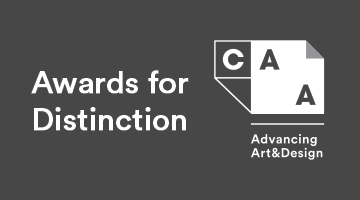
CAA is seeking student videographer(s) interested in creating short video profiles on select recipients of our 2022 Distinguished Awards, to be completed this spring. Videos will be limited to three minutes in duration and will tell the story of the award recipient. For this pilot project, two awardees have been selected:
- Fred Hagstrom – Distinguished Teaching of Art Award, and
- Zahira Véliz- CAA/American Institute for Conservation Award for Distinction in Scholarship and Conservation
The selected video profiles will be featured on CAA’s YouTube Channel and on the CAA website. The selected student will receive a complementary one-year membership to CAA and access to CAA’s 2023 Annual Conference.
Timeline
March 22, 2022 – Application for videographer deadline
April 5, 2022- Notification of selected videographer(s)
June 8, 2022- Completed videos due
Application instructions:
Please fill out this form and send a resume as a PDF to info@collegeart.org with “Distinguished Awards Videographer” in the subject line.
Meet the 2021 Professional Development Fellows
posted Feb 18, 2022
CAA is pleased to announce the recipients of the 2021 Professional Development Fellowships. The recipient of the $10,000 fellowship in visual arts is Christine Lee, California Institute of the Arts and the recipient of the $10,000 fellowship in art history is Jenny Tang, Yale University. An honorable mention in visual arts goes to Malene Barnett, Temple University and an honorable mention in art history goes to Maia Nichols, University of California, San Diego. All fellows and honorable mentions receive a complimentary one-year CAA membership and registration for the 2022 Annual Conference.
2021 PROFESSIONAL DEVELOPMENT FELLOWSHIP IN VISUAL ARTS
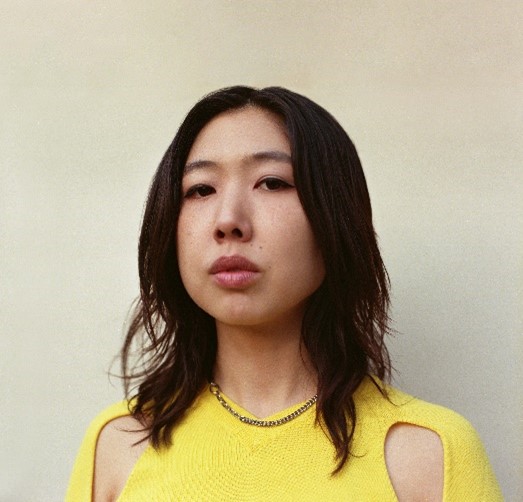
Christine Lee, California Institute of the Arts
Christine Yerie Lee is a visual artist primarily working in video, installation and sculpture. Raised in the American South by immigrant parents from South Korea, her practice explores performativity and identity-formation, often using the body to articulate ideas concerning resistance to hegemonic power structures in hopes to create a future yet to be imagined or narrativized. By engaging with folklore, history, and pop culture, her work addresses personal and collective memory, hybridity, and authenticity. Her material explorations reflect the poetics informed by these notions and are often activated in her digital works. Through intersectional inquiry and worldbuilding, she aims to illuminate the distinct and parallel threads of the human experience to provide pathways for connection. Lee received a BFA in Apparel Design from Rhode Island School of Design in 2010 and worked as a fashion designer for a decade prior to graduate school. She currently resides in Los Angeles and will complete her MFA in Art at California Institute of the Arts in May 2021.
HONORABLE MENTION IN VISUAL ARTS
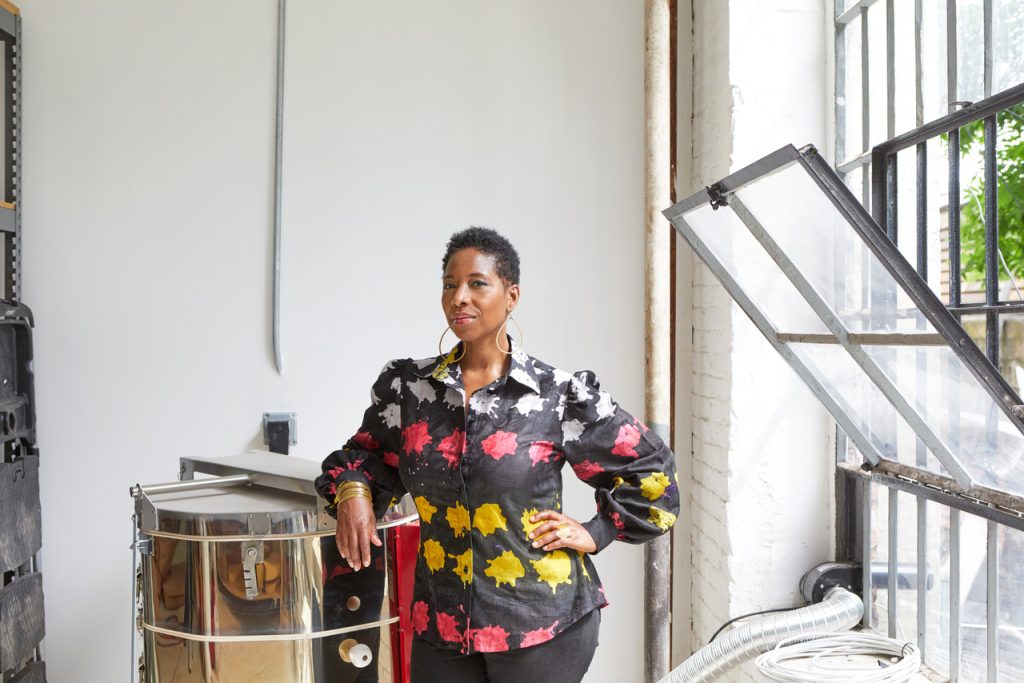
Malene Barnett, Temple University
Malene Barnett is a multi-disciplinary artist, entrepreneur, and authority on the cultural traditions and practices of art in the African diaspora and how it translates into her vision of the modern black experience. From her sculptural ceramic tiles and vessels to mixed media paintings to handwoven rugs, Barnett continues to evolve her craft and share her African heritage with a global audience. Using archival materials like glass, fiber and clay, she uncovers a deeper language of her legacy and an authentic understanding of her cultural identity. A passionate connector and expert ambassador, her mission is to use art as a tool to create community impact and open doors for the next generation of black artists and expand the conversation around marginalization in the arts and create greater opportunities for inclusion.
As the founder of the Black Artists + Designers Guild, a global platform and curated collective of independent black makers, she constantly seeks new ways to define the Black narrative and experience for a new generation while bringing awareness to inequality. Her work has been praised in Interior Design Magazine, New York Magazine, Traditional Home, Elle Decor, HGTV Magazine, Luxe + Design Magazine, and House Beautiful. She was also on the cover of Brownstoner Magazine and Wendy Goodman’s Designer Lives video series with New York Magazine’s The Cut. Her entrepreneurial spirit was captured in the NY Times bestselling book “In the Company of Women ” and Home by Hygge & West. She has appeared as a guest speaker on Morning Joe, MSNBC Your Business, and TEDx. Malene’s works have been exhibited at Museum of Science and Industry, Dallas African American Museum, Jane Hartsook Gallery, Mindy Solomon Gallery, Baltimore Clayworks, DAAP Galleries, and The Clay Studio.
2021 PROFESSIONAL DEVELOPMENT FELLOWSHIP IN ART HISTORY
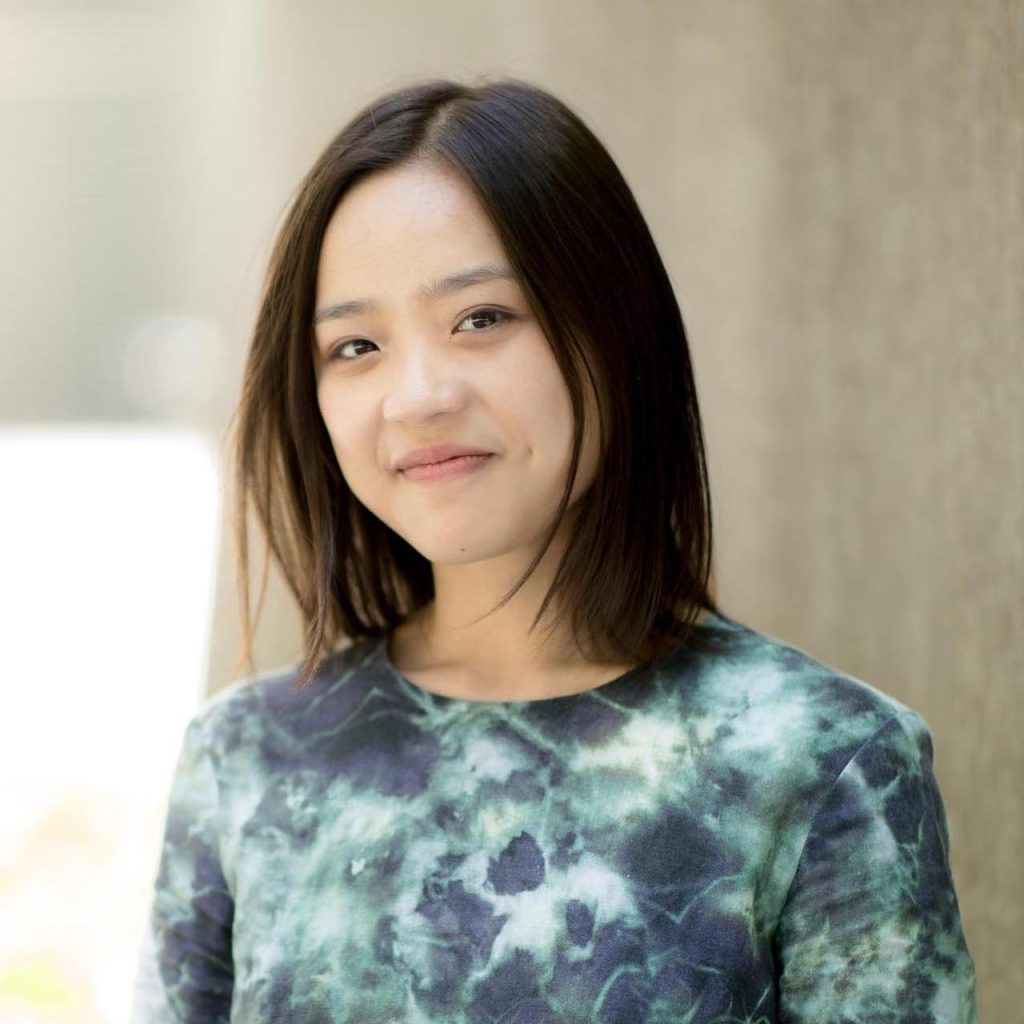
Jenny Tang is a doctoral candidate in History of Art and Film & Media Studies at Yale University, where she specializes in modern and contemporary art, media, and visual culture of the Atlantic world. Tang’s dissertation combines original archival research and a feminist postcolonial perspective to show how layered twentieth-century regimes of race and citizenship in the United States shaped modernist imaginations of the body across the Atlantic. From photomontage and abstraction to security and confinement, this work recasts the history of modernism through the lens of Asian American and African American racial formation. In addition to her scholarly practice, Tang writes criticism on the cultural politics of art, film, and music. She has also contributed to exhibitions and programs at the Studio Museum in Harlem and the Museum of Modern Art, where she was a 2020-21 Mellon-Marron Research Fellow in the Department of Painting and Sculpture. At Yale, she co-organized the group exhibition New Genealogies with photographer John Edmonds at the Yale School of Art. Tang currently teaches foundational topics in art history in the Department of Art History and the Rose Hill Honors Program at Fordham University.
HONORABLE MENTION IN ART HISTORY
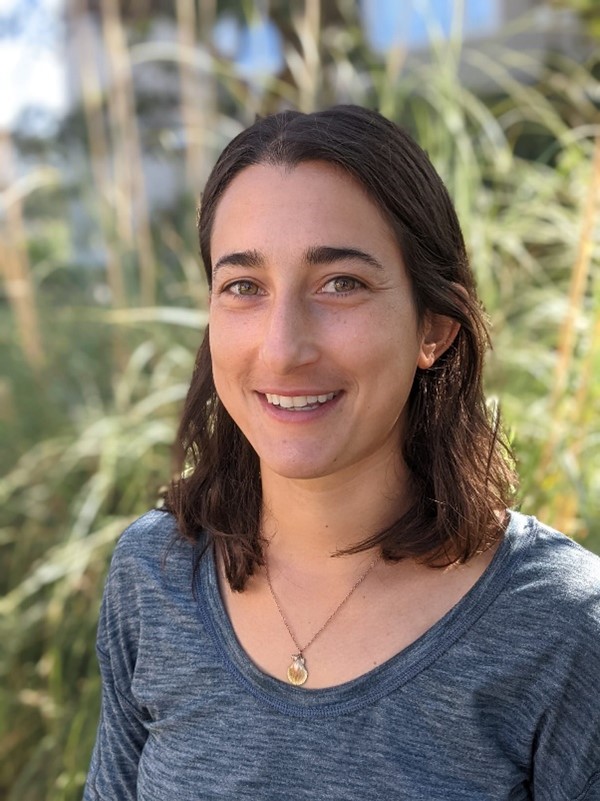
Maia Nichols, University of California, San Diego
Maia Nichols is a Lebanese American-Canadian doctoral candidate in art history, criticism and theory at University of California San Diego specializing in 20th century French and North African visual and material culture, postcolonial theory, and the history of social psychiatry. She holds degrees in psychology and visual art from the University of British Columbia in Vancouver and a masters in aesthetics and politics from the California Institute of the Arts. She additionally engages in art practice and has taught studio art drawing at UC San Diego. Her work has been exhibited internationally. Her art criticism has been published in venues such as Flash Art International, Hyperallergic, and Diagram. Her dissertation, researched in France with support from a four-year Canadian Social Sciences and Humanities Research Council Doctoral Fellowship, engages art historical visual and material culture methods and theories to consider the institutional history of French colonial North Africa’s progression to independence during the social psychiatry movement, drawing on a range of archival evidence of material culture and experience.
ABOUT THE PROFESSIONAL DEVELOPMENT FELLOWSHIP
CAA’s Professional Development Fellowship program supports promising artists and art historians who are enrolled in MFA and PhD programs nationwide. Awards are intended to help them with various aspects of their work, whether for job-search expenses or purchasing materials for the studio. CAA believes a grant of this kind, without contingencies, can best facilitate the transition between graduate studies and professional careers. The program is open to all eligible graduate students in the visual arts and art history. Applications for the 2022 fellowship cycle will be due December 15, 2022. Learn more.
Affiliated Society News: February
posted Feb 15, 2022
Many of CAA’s affiliated societies will be presenting virtual sessions at our 110th Annual Conference from February 17-19 and from March 3-5. Check out a list of their sessions to preview!
To attend these sessions and more, make sure to register for the conference and learn more at its registration page.
AHNCA (Association of Historians of Nineteenth-Century Art)
Events
AHNCA’s Emerging Scholars Working Group Presents: See/Sip/Share: AHAA Crossover
Wednesday, February 23 at 6 p.m. EST
The Emerging Scholars Working Group of the Association of Historians of Nineteenth-Century Art will join with the Association of Historians of American Art (AHAA) to host a See/Sip/Share, a bring-your-own beverage casual discussion of two images. Register here.
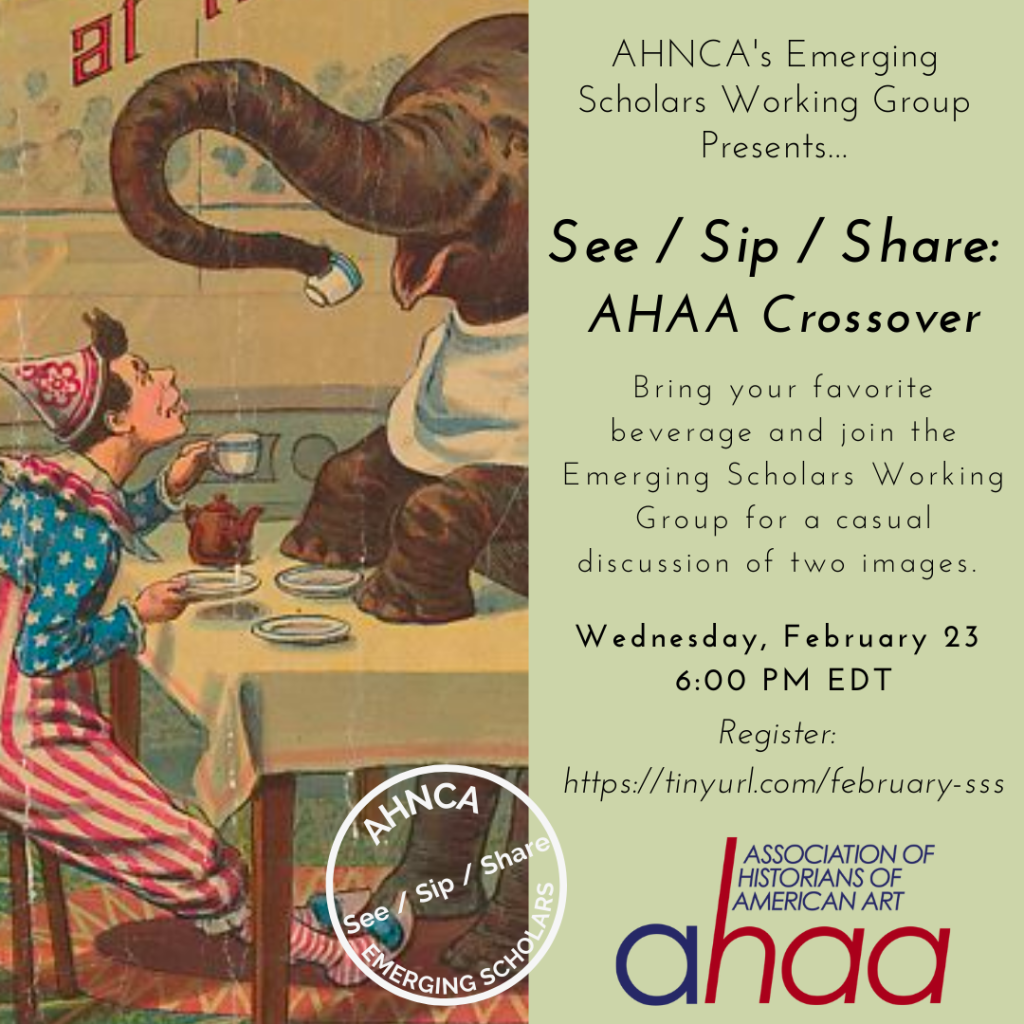
CAA’s 109th Annual Business Meeting Minutes
posted Feb 11, 2022
COLLEGE ART ASSOCIATION
109TH ANNUAL BUSINESS MEETING
FRIDAY, FEBRUARY 12, 2021 2:00 P.M. EST
MINUTES
- Call to Order/Opening Remarks
- President Elizabeth Schlatter called the meeting to order at 2:02 p.m. EST. She thanked the staff for their enormous efforts. She then acknowledged the diverse people linked to the land on which she works and lives, particularly those who have been displaced from that land.
- Executive Director’s Report
- Meme Omogbai offered a reflection on the importance of this conference. It is amazing we were able to offer the extensive content we did during a pandemic, specifically:
- 365 sessions, over 1100 individual presentations in addition to a book and trade fair. Intersectionality between the visual arts, climate change, eco-feminism, and many other topics.
- The virtual format of the conference has offered a new level of access. Content is available across the world and for a month after the conference.
- The conference will serve as an important turning point in the history of CAA toward achieving the four pillars of its Strategic Repositioning:
- Long term sustainability of the organization through attention to meeting the needs of all segments of our constituency and maximizing the value of membership
- Social Entrepreneurship and e-commerce
- Technological infrastructure towards a digital transformation to ensure effective and efficient operations and delivery of content
- Robust development activities
- Meme Omogbai offered a reflection on the importance of this conference. It is amazing we were able to offer the extensive content we did during a pandemic, specifically:
- Approval of the minutes from the February 2020 annual meeting.
- Approval of Minutes of 108th Annual Business Meeting, held in two parts, February 12, and February 14, 2020
- Jaqueline Francis moved; Laura Anderson Barbata seconded. The minutes were approved unanimously.
- Financial report
- CFO Bob Tofolo reported on the following items:
- The association posted a breakeven operating budget for FY20.
- The association continues to operate under a break-even budget for FY21. This includes $3.3M in current expenses against equivalent revenue.
- A PPP loan of $372,000 was awarded to CAA. That loan was subsequently forgiven last December.
- The endowment market value on June 30, 2020 was $9.825M vs prior year of $9.6M
- Member count for this year vs. last: As of June 30, 2020, there were 6,699 (7,773, -14%) individual members. There were 443 (464) organizational members and an additional 586 (617, -5%) subscribers to The Art Bulletin and/or Art Journal through our co-publisher Taylor and Francis. These numbers are not exactly comparative as prior year memberships reflect exaggerated increases due to discounts that are absent this year.
- 3938 registered attendees at the conference as of this morning. It is expected to be over 4000 by tomorrow.
- Question (posed by a member in attendance): how did numbers compare to the last NYC conference? 2019 attendance was over 5000, but the numbers from this year’s count include registrations for Free and Open sessions which we would not have tracked in prior years so some additional work needs to be done so that we can compare apples to apples.
- CFO Bob Tofolo reported on the following items:
- New Business
- The following question was posed by a member in attendance: Considering technical issues that have emerged this year, will CAA be evaluating Confex and considering whether they are the best vendor to use moving forward? Elizabeth indicated that the organization would be evaluating all aspects of the conference, including the platform. Meme added that in the midst of this digital transformation, there will be a consolidation of different systems that will address some of the issues that emerged. She encouraged people to fill out the conference surveys that are being administered.
- Results of Election of New Directors
- Elizabeth announced the newly elected CAA Board Members:
- Roland Betancourt
- Lara Evans
- Wanda Raimundi-Ortiz
- Kelly Walters
- Kelvin Parnell Jr. (Emerging Professional)
- Elizabeth announced the newly elected CAA Board Members:
- Adjournment
- The meeting was adjourned at 2:25 p.m. EST.
Respectfully submitted by Colin Blakely, Secretary.
CAA’s 110th Annual Business Meeting Agenda
posted Feb 11, 2022
CAA Annual Business Meeting Agenda
Friday, February 18, 2022
1 p.m. CT
The 110th Annual Business Meeting of the members of the College Art Association will be called to order at 1 p.m. CT on Friday, February 18 at the 2022 Annual Conference. Access to this meeting is included in paid registration and can also be accessed by registering for ”No-cost registration”. Once you have registered, please log into the online conference schedule to attend the meeting.
CAA President, N. Elizabeth Schlatter will preside.
- Welcome + Call to Order – N. Elizabeth Schlatter, CAA President
- Executive Director’s Report – Meme Omogbai, CAA Executive Director + CEO
- Approval of Minutes of 109th Annual Business Meeting [ACTION ITEM]
- Financial Report – Georgia Harrell, CAA Treasurer + Robert Tofolo, CAA Head of Operations
- Old/New Business
- Board Member Election Results – N. Elizabeth Schlatter, CAA President
- Adjourn
Proxies
If you are unable to attend the Annual Business Meeting, kindly complete a proxy online to appoint the individuals named thereon to (i) vote, as directed by you, for directors, and, at their discretion, on such other matters as may properly come before the Annual Business Meeting; and (ii) vote on any and all adjournments thereof. A proxy, with your vote for directors, must be received no later than 5 p.m. CT Thursday, February 17th, 2022.
Next Meeting – 2023
The 111th Annual Business Meeting of the College Art Association will be held in New York in 2023, precise date to be announced.
Black History Month and Art Journal Open
posted Feb 10, 2022
Each week this Black History Month, we highlight the rich scholarship and programs produced at CAA that celebrate, recognize, and interrogate Black art, history, and experience. This week, we are sharing a bibliography of articles from our online, open-access journal Art Journal Open that addresses these topics.
 Aranke, Sampada. “Objects Made Black.” Art Journal Open (February 9, 2015). Crossover article from Art Journal 73, no. 3 (Fall 2014) reviewing Huey Copeland, Bound to Appear: Art, Slavery, and the Site of Blackness in Multicultural America, Chicago: University of Chicago Press, 2013. Aranke, Sampada. “Objects Made Black.” Art Journal Open (February 9, 2015). Crossover article from Art Journal 73, no. 3 (Fall 2014) reviewing Huey Copeland, Bound to Appear: Art, Slavery, and the Site of Blackness in Multicultural America, Chicago: University of Chicago Press, 2013. |
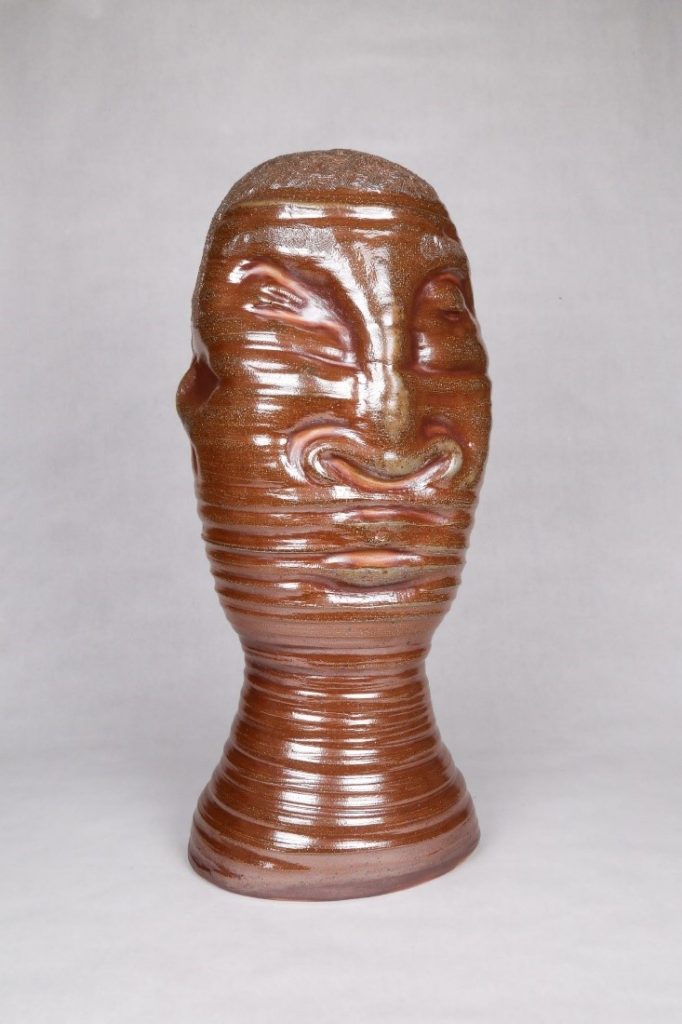
Baralaye, Ebitenyefa and Glenn Adamson. “The Weight of Matter: Ebitenyefa Baralaye and Glenn Adamson in Conversation.” Art Journal Open (May 20, 2021). Ebitenyefa Baralaye, Portrait I (multiple views), 2020, salt-glazed stoneware, 25 x 12 x 10 in.
|
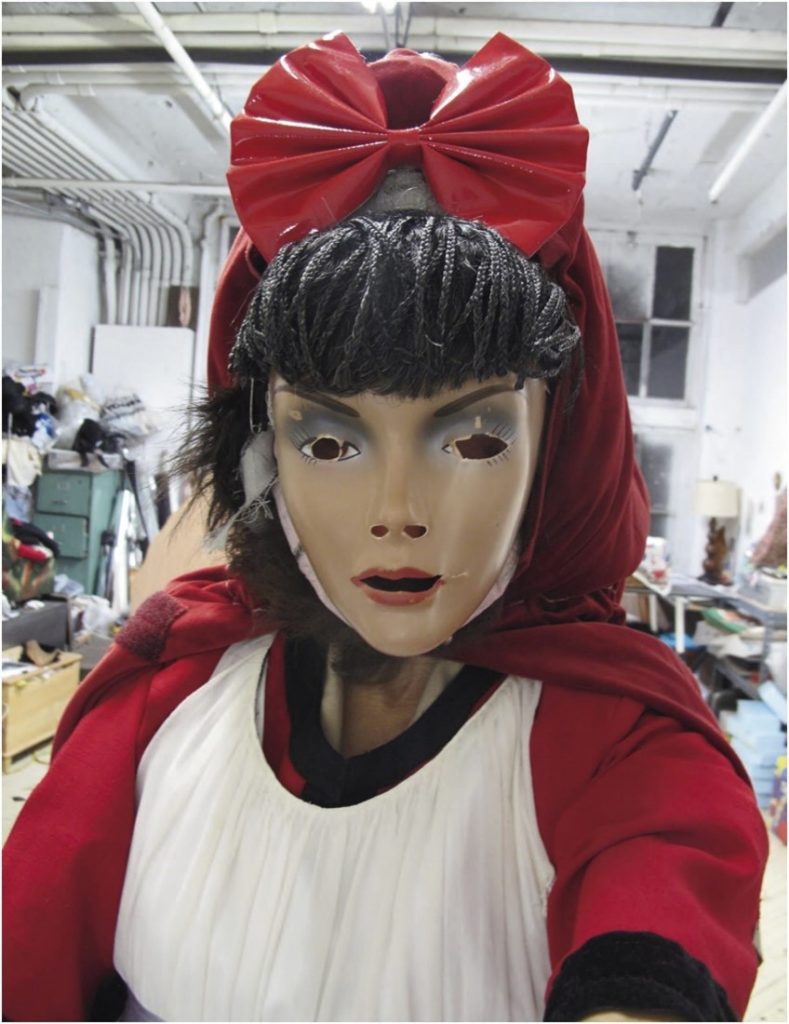
Barber, Tiffany E. “Narcissister, a Truly Kinky Artist.” Art Journal Open (March 11, 2020). Narcissister, Red Riding Hood, 2014, mixed media (photograph provided by the artist).
|

Best, Makeda. “Interview with Texas Isaiah.” Art Journal Open (April 8, 2021). Crossover article from Art Journal 80, no. 1 (Spring 2021). Texas Isaiah, don’t kill this vibe, 2018 (artwork © Texas Isaiah; photograph provided by the artist)
|
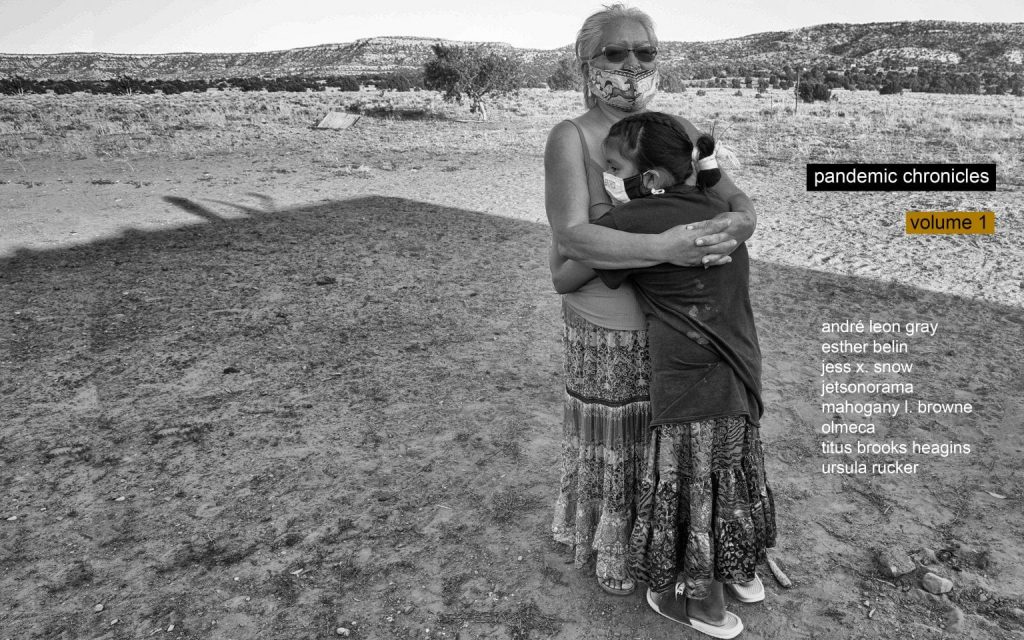
Childs, Adienne L. Riffs and Relations: African American Artists and the European Modernist Tradition. Washington, DC and New York: Phillips Collection in association with Rizzoli Electa, 2020. Sanford Biggers, Negerplastik, 2016, repurposed antique quilt, cotton fabric fragments, tar, and glitter, 81 × 76 3/4 in. (205.7 x 195 cm) (photograph by Todd-White Art Photography, provided by Massimo De Carlo, Milan/London/Hong Kong)
|
 Cunningham, Nijah. “With Each Other.” Art Journal Open (October 14, 2021). Crossover article from Art Journal 80, no. 3 (Fall 2021) reviewing Nicole R. Fleetwood. Marking Time: Art in the Age of Mass Incarceration. Cambridge, MA: Harvard University Press, 2020. Cunningham, Nijah. “With Each Other.” Art Journal Open (October 14, 2021). Crossover article from Art Journal 80, no. 3 (Fall 2021) reviewing Nicole R. Fleetwood. Marking Time: Art in the Age of Mass Incarceration. Cambridge, MA: Harvard University Press, 2020. |

Dally, Jenny and Fred Eversley. “The Object and You: Fred Eversley in Conversation with Jenny Dally.” Art Journal Open (February 25, 2021). Fred Eversley in his Venice Beach studio, 2018 (photograph by Elon Schoenholz; photograph provided by David Kordansky Gallery, Los Angeles)
|
 Gaines, Malik. “City after Fifty Years’ Living: LA’s Differences in Relation.” Art Journal Open (July 17, 2012). Gaines, Malik. “City after Fifty Years’ Living: LA’s Differences in Relation.” Art Journal Open (July 17, 2012).
Ice Cube Celebrates the Eames, poster, 2011 (artwork © J. Paul Getty Trust)
|

Gale, Nikita and Jesús Fuenmayor. “Barricades of Silence: Nikita Gale in Conversation with Jesús Fuenmayor.” Art Journal Open (August 20, 2020). Nikita Gale, INTERCEPTOR, 2019, installation view, Fall Apart: Nikita Gale & Pat O’Neill, Martos Gallery, New York, January 11–February 24, 2019 (artwork © Nikita Gale; photograph by Charles Benton/Martos Gallery, provided by the artist),
|

Gbadegesin, Olubukola A. “Damon Davis’s Negrophilia: Encounters with Black Death.” Art Journal Open (August 30, 2017). Damon Davis, Untitled (2), 2015, bookprint, ink, watercolor, adhesive, from the series Negrophilia (artwork © Damon Davis)
|

Majeed, Risham and Blake Bradford. “Just Being.” Art Journal Open (May 22, 2020). Albrecht Dürer, Portrait of a Black Man (untitled), 1508, black chalk on paper. Original shown here; the NMAAHC has a reproduction in the Middle Passage galleries.
|

Raiford, Leigh. “Burning All Illusion: Abstraction, Black Life, and the Unmaking of White Supremacy.” Art Journal Open (January 14, 2021). Samuel Levi Jones, Joshua, 2016, deconstructed Illinois law books on canvas, 61½ x 77 in. (156.2 x 195.6 cm) (artwork © Samuel Levi Jones; photograph provided by Galerie Lelong)
|
 Sifuentes, Aram Han. “How Internalized White Supremacy Manifests for My BIPOC Students in Art School.” Art Journal Open (July 8, 2021). Sifuentes, Aram Han. “How Internalized White Supremacy Manifests for My BIPOC Students in Art School.” Art Journal Open (July 8, 2021).
Cute Rage Press (Aram Han Sifuentes and Ishita Dharap), detail of Taking Receipts:
|
| Saggese, Jordana Moore, Cauleen Smith, Charles Gaines, Edgar Arceneaux, Howardena Pindell, Michael Ray Charles, and Glenn Ligon. “A Call to Artists.” Art Journal Open (October 26, 2021). Crossover article from Art Journal 80, no. 3 (Fall 2021).
|

Tani, Ellen Y. “Come Out to Show Them: Speech and Ambivalence in the Work of Steve Reich and Glenn LigonSpeech and Ambivalence in the Work of Steve Reich and Glenn Ligon.” Art Journal Open (December 23, 2019). Glenn Ligon, Come Out Study #13, 2014, silkscreen on canvas on panel, 36 x 47 7/8 in. (91.4 x 121.6 cm) (artwork © Glenn Ligon; photograph by Ronald Amstutz, provided by the artist, Hauser & Wirth, New York, Regen Projects, Los Angeles, Thomas Dane Gallery, London, and Chantal Crousel, Paris)
|

Thompson, Krista. ““I WAS HERE BUT I DISAPEAR”: Ivanhoe “Rhygin” Martin and Photographic Disappearance in Jamaica.” Art Journal Open (August 14, 2018). Production still from The Harder They Come, 1972, 16mm color film, dir. Perry Henzell, cinematography by Frank St. Juste, David McDonald, and Peter Jessop, produced by International Films / Xenon Pictures (photograph published under fair use)
|
 Williams, Stephanie Sparling. “Artful Embodiment: Genealogies of the Impossible.” Art Journal Open (November 27, 2018). Crossover article from Art Journal 77, no. 3 (Fall 2018) reviewing Uri McMillan, Embodied Avatars: Genealogies of Black Feminist Art and Performance, New York: New York University Press, 2015. Williams, Stephanie Sparling. “Artful Embodiment: Genealogies of the Impossible.” Art Journal Open (November 27, 2018). Crossover article from Art Journal 77, no. 3 (Fall 2018) reviewing Uri McMillan, Embodied Avatars: Genealogies of Black Feminist Art and Performance, New York: New York University Press, 2015. |
 Winslow, Margaret. “Pope.L: The Body and Its Void.” Art Journal Open (January 14, 2021). Crossover article from Art Journal 79, no. 4 (Winter 2020) reviewing member: Pope.L, 1978–2001., exhibition organized by Stuart Comer with Danielle A. Jackson. Museum of Modern Art, New York, October 21, 2019–February 1, 2020. Winslow, Margaret. “Pope.L: The Body and Its Void.” Art Journal Open (January 14, 2021). Crossover article from Art Journal 79, no. 4 (Winter 2020) reviewing member: Pope.L, 1978–2001., exhibition organized by Stuart Comer with Danielle A. Jackson. Museum of Modern Art, New York, October 21, 2019–February 1, 2020. |

Zorach, Rebecca. “Art and Soul: An Experimental Friendship between Street and Museum .” Art Journal Open (September 4, 2011). Art & Soul exterior with Rainbow mural by Sachio Yamashita, 1969 (mural now destroyed) (mural artwork © Eileen Petersen Yamashita, all rights reserved, used with permission; photograph © Ann Zelle)
|
CAA Intern Spotlight
posted Feb 10, 2022
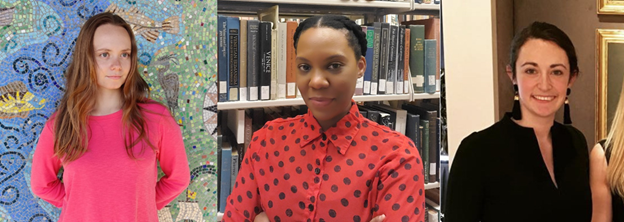
This week, CAA spotlights its three amazing interns who have been working with CAA since early fall 2021: Development Intern, Viktoriya Molchanova, Editorial Intern, Keshawna Mooney, and Grants Administration Intern, Astrid Tvetenstand. Learning to work remotely for an organization as a young professional is no small feat and we thank them for their dedication, enthusiasm, and support.
Development Intern: Viktoriya Molchanova
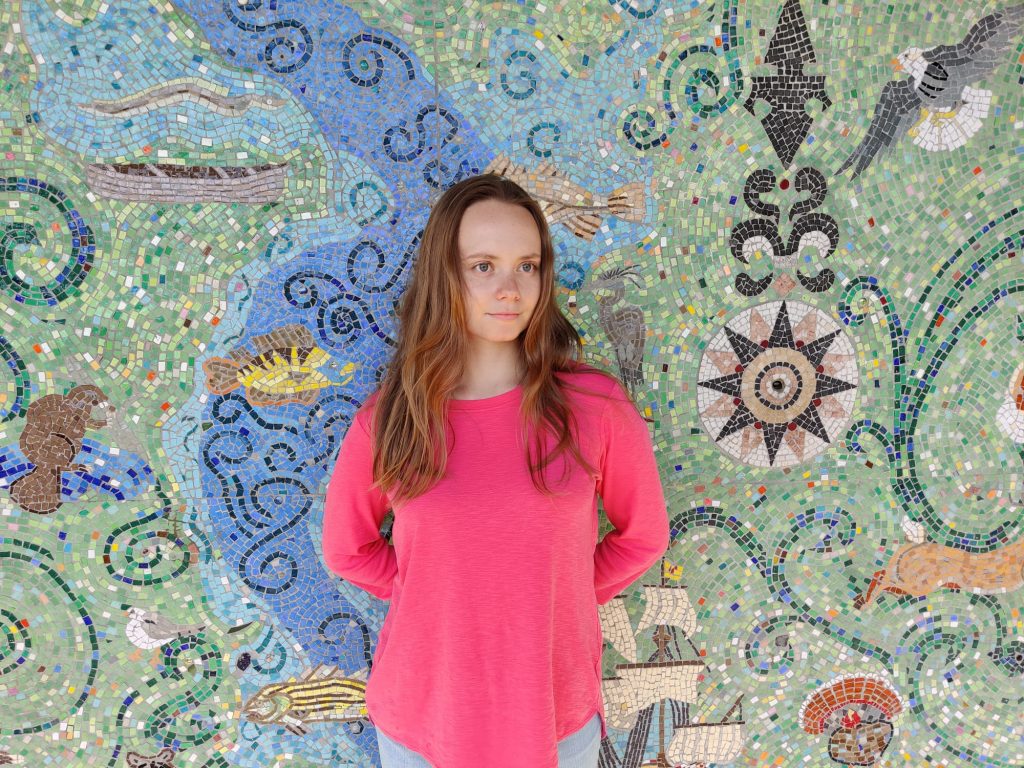
How has your experience at CAA affected you?
As a flutist with a performing arts background, I did not know much about the visual arts. As an aspiring future arts administrator, I wanted to take an internship at CAA to expand my knowledge and work experience specifically in the visual arts. Throughout these months, I have gained a deeper understanding of the visual arts world from its accomplished scholars to its dedicated funders. My great-grandfather was a visual arts scholar and attended many international visual arts conferences. I am happy to continue his legacy through my internship at CAA.
What is your favorite kind of art and why?
My favorite art is The Unicorn Rests in a Garden from the Unicorn Tapestries at the Met. The tapestry reminds me of a time when I arrived in elementary school as a first generation immigrant. It was challenging to learn the English language and assimilate into a new culture. However, the arts education at my school helped me overcome my struggles. My visual arts teacher saw that I enjoyed looking through his art book on unicorns. As a kind gesture, he gave me the book as a gift. After all these years, I still keep book as a reminder of the transformative power of arts education on my life and career.
Viktoriya Molchanova is a graduate student in the Arts Administration Master’s program at Baruch College and holds two Bachelor’s in Arts Management and Classical Instrumental Performance from Purchase College. She won the Nagelberg Family Scholarship in Arts Administration in 2021 and the SAMMIE Award for Outstanding Achievement in Arts Management in 2020. Viktoriya is in her last semester at Baruch College and is writing her Master’s thesis. Viktoriya is happy to connect on LinkedIn.
Editorial Intern: Keshawna Mooney
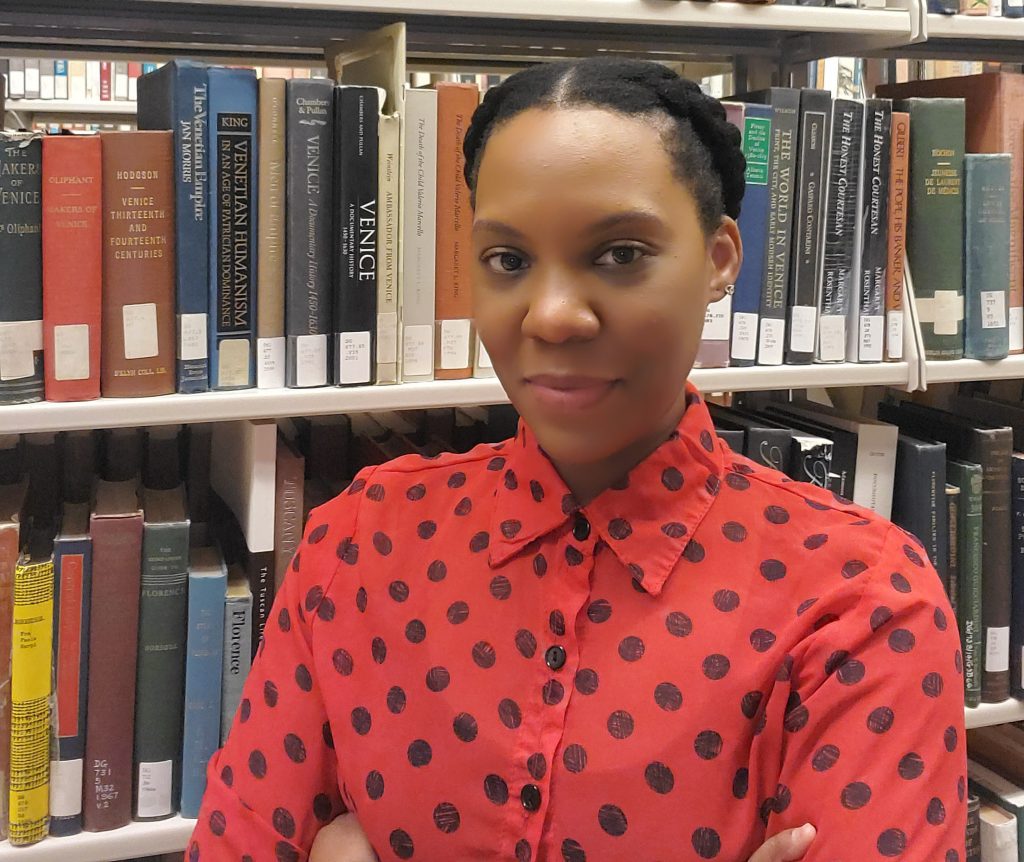
How has your experience at CAA affected you?
My internship at CAA has been an amazing experience. I have learned so much about the publishing process and become more familiar with specific style guides which were both specific goals I had for myself. It has been great to work with such an encouraging supervisor that has allowed me to advance these skills and grow as a young professional. I am also proud to have been part of the team that assists artists, scholars, and other art lovers in presenting their work and ideas to an audience.
What was something you learned that was unexpected?
I have been amazed to learn the amount of work that goes into journal publishing. Being able to work on all journals simultaneously has been exciting and learning to prioritize while juggling multiple projects has helped strengthen my time management skills even further. I have also discovered that the editing process is a much more collaborative experience as opposed to solitary, and it feels great to know that I have support and guidance when I need it.
What is your favorite kind of art and why?
While I love all forms of art, my favorite kind of visual art would be street art because you can find it almost anywhere and sometimes in the most unexpected places. In addition to its accessibility, street art takes concepts many of us recognize and positions them in ways so relatable that tells us we are seen and maybe even understood. Some of my favorite street artists include DAZE, Bambi, and WRDSMTH.
Keshawna Mooney is an Editorial Intern at CAA. She is a junior at CUNY Brooklyn College majoring in English and Creative Writing. Her goal is to present multilayered characters in their most complicated, contradictory, and raw forms. She is also a winner of the 2021 James Tolan Award for her essay “Lolita: The Unknowingly Irresponsible Girl Child.” She has worked as a supplemental instructor at BMCC working with students to develop and improve their writing skills and as an English literacy volunteer with adult populations. After graduation she hopes to be able to continue doing the work she loves, telling interesting stories and helping others tell theirs. In her spare time, you can find her wandering around art museums, enjoying theater, or curled up with a good book.
Grants Administration Intern: Astrid Tvetenstrand
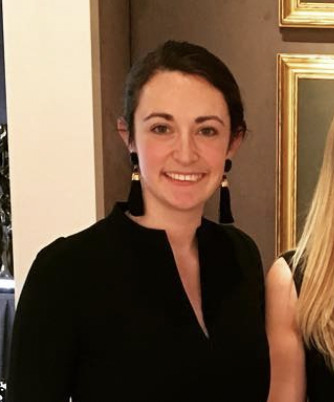
How has your experience at CAA affected you?
Working at CAA has exposed me to the larger community of art historians outside my discipline. Everyone at CAA is building a productive network of professionals, scholars, emerging leaders in the field who are building each other up and sharing resources. I have learned so much about how grants and awards are administered to simultaneously give people more opportunities for their work.
What was something you learned that was unexpected?
I learned that juries make hard decisions and are ultimately trying to celebrate and grant as many projects as possible. Before working at CAA, I had only ever experienced the application process and had not given too much thought to what happens after you click the submit button. Listening to the juries’ debate was illuminating and FUN. The process is complex, intellectual, and ultimately much more nuanced than I previously thought.
What is your favorite kind of art and why?
I love nineteenth-century American landscape painting because it is beautiful, complicated, and speaks to so many important themes and topics within our shared history.
Astrid Tvetenstrand is a fourth year PhD candidate in the American & New England Studies program at Boston University. She studies the history of American painting, decorative arts, and architecture. She explores these fields through practices of collection, economic development, and the consumption of American property. Her dissertation examines late nineteenth-century American landscape painting’s role in the creation of seasonal colonies. By investigating art’s relationship to the development of property, she analyzes the socioeconomic framework which shaped both the visual content and physical market of landscape painting. She looks at the role of nature in the lives of nineteenth-century Americans and how it influenced the creation of art and commerce in the United States.
Black History Month and caa.reviews
posted Feb 03, 2022
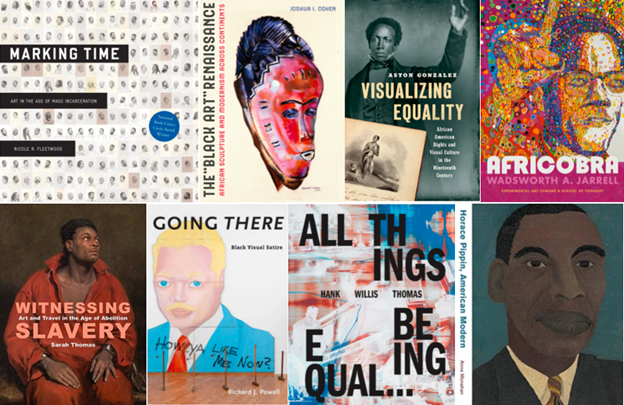
Each week this Black History Month, we highlight the rich scholarship and programs produced at CAA that celebrate, recognize, and interrogate Black art, history, and experience. This week, we are sharing a bibliography of publications and exhibitions reviewed on our online, open-access journal caa.reviews from this past year that addresses these topics.
caa.reviews also houses rosters of dissertation titles in progress and completed since 2002 and many long-form essays that intersect with these themes as well, such as current Editor-in-Chief of Art Journal, Eddie Chambers, essay Reflections on African and African Diaspora Art from 2016.
 Childs, Adienne L. Riffs and Relations: African American Artists and the European Modernist Tradition. Washington, DC and New York: Phillips Collection in association with Rizzoli Electa, 2020.
Childs, Adienne L. Riffs and Relations: African American Artists and the European Modernist Tradition. Washington, DC and New York: Phillips Collection in association with Rizzoli Electa, 2020.
Sanford Biggers, Negerplastik, 2016, repurposed antique quilt, cotton fabric fragments, tar, and glitter, 81 × 76 3/4 in. (205.7 x 195 cm) (photograph by Todd-White Art Photography, provided by Massimo De Carlo, Milan/London/Hong Kong)
 Choi, Connie H., Thelma Golden, and Kellie Jones. Black Refractions: Highlights from the Studio Museum in Harlem. New York: Rizzoli Electa, 2019.
Choi, Connie H., Thelma Golden, and Kellie Jones. Black Refractions: Highlights from the Studio Museum in Harlem. New York: Rizzoli Electa, 2019.
Jordan Casteel, Kevin the Kiteman, 2016, oil on canvas, 78 x 78 in. (198.1 x 198.1 cm). The Studio Museum in Harlem, New York, Museum purchase with funds provided by the Acquisition Committee 2016.37 (artwork © Jordan Casteel; photograph by Adam Reich, provided by American Federation of Arts)
Cohen, Joshua I. The “Black Art” Renaissance: African Sculpture and Modernism across Continents. Oakland: University of California Press, 2020.
David Driskell: Icons of Nature and History. Atlanta and New York: High Museum of Art and Rizzoli Electa, 2021.
David Driskell, Young Pines Growing, 1959, oil on canvas. Clark Atlanta University Art Museum, John Hope Franklin Purchase Award (artwork © Estate of David C. Driskell; photograph provided by High Museum of Art)
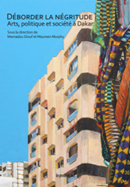 Diouf, Mamadou and Maureen Murphy, editors. Déborder la négritude: Arts, politique et société à Dakar. Dijon. France: Les presses du réel, 2020.
Diouf, Mamadou and Maureen Murphy, editors. Déborder la négritude: Arts, politique et société à Dakar. Dijon. France: Les presses du réel, 2020.
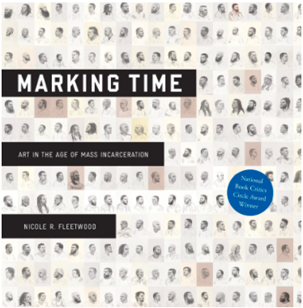 Fleetwood, Nicole R. Marking Time: Art in the Age of Mass Incarceration. Cambridge, MA: Harvard University Press, 2020.
Fleetwood, Nicole R. Marking Time: Art in the Age of Mass Incarceration. Cambridge, MA: Harvard University Press, 2020.
 Gonzalez, Aston. Visualizing Equality: African American Rights and Visual Culture in the Nineteenth Century. John Hope Franklin Series in African American History and Culture. Chapel Hill: University of North Carolina Press, 2020.
Gonzalez, Aston. Visualizing Equality: African American Rights and Visual Culture in the Nineteenth Century. John Hope Franklin Series in African American History and Culture. Chapel Hill: University of North Carolina Press, 2020.
 Hank Willis Thomas: All Things Being Equal . . . New York and Portland, OR: Aperture Foundation in association with Portland Art Museum, 2018.
Hank Willis Thomas: All Things Being Equal . . . New York and Portland, OR: Aperture Foundation in association with Portland Art Museum, 2018.
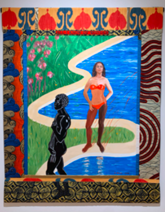 Harris, Shawnya L.,editor. Emma Amos: Color Odyssey. Athens: Georgia Museum of Art, University of Georgia, 2021.
Harris, Shawnya L.,editor. Emma Amos: Color Odyssey. Athens: Georgia Museum of Art, University of Georgia, 2021.
Emma Amos, All I Know of Wonder, 2008, oil on linen, African fabric, 70 1/2 x 55 1/2 in. (179.1 x 141 cm), installation view, Emma Amos: Color Odyssey, Georgia Museum of Art, University of Georgia, Athens, 2021 (photograph by the author)
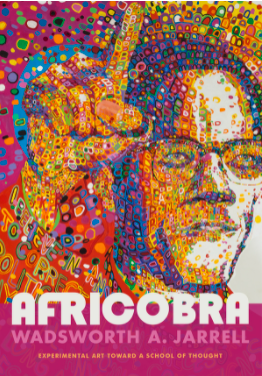 Jarrell, Wadsworth A. AFRICOBRA: Experimental Art toward a School of Thought. Durham, NC: Duke University Press, 2020.
Jarrell, Wadsworth A. AFRICOBRA: Experimental Art toward a School of Thought. Durham, NC: Duke University Press, 2020.
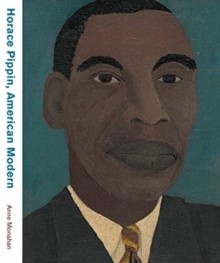 Monahan, Anne. Horace Pippin, American Modern. New Haven, CT: Yale University Press, 2020.
Monahan, Anne. Horace Pippin, American Modern. New Haven, CT: Yale University Press, 2020.
Mühling, Matthias and Stephanie Weber, editors. Senga Nengudi: Topologies. Munich: Hirmer, 2021.
Senga Nengudi, Warp Trance, 2007, multi-channel audio/video installation in collaboration with the Fabric Workshop and Museum, Philadelphia, with a sound composition by Butch Morris, installation view, Senga Nengudi: Topologies, Philadelphia Museum of Art, 2021 (photograph © Aaron Igler, provided by the artist and The Fabric Workshop and Museum)
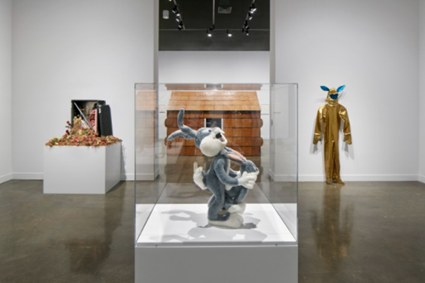 No Wrong Holes: Thirty Years of Nayland Blake. Los Angeles and Cambridge, MA: Institute of Contemporary Art and MIT List Visual Arts Center (online), 2020.
No Wrong Holes: Thirty Years of Nayland Blake. Los Angeles and Cambridge, MA: Institute of Contemporary Art and MIT List Visual Arts Center (online), 2020.
No Wrong Holes: Thirty Years of Nayland Blake, installation view, MIT List Visual Arts Center, Cambridge, MA, 2020–21 (photograph © Charles Mayer, provided by MIT List Visual Arts Center)
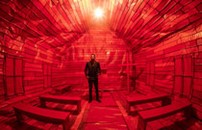 Oliver, Valerie Cassel. The Dirty South: Contemporary Art, Material Culture, and the Sonic Impulse. Richmond, VA and Durham, NC: Virginia Museum of Fine Arts in association with Duke University Press, 2021.
Oliver, Valerie Cassel. The Dirty South: Contemporary Art, Material Culture, and the Sonic Impulse. Richmond, VA and Durham, NC: Virginia Museum of Fine Arts in association with Duke University Press, 2021.
Rodney McMillian, Asterisks in Dockery (Blues for Smoke), 2021, vinyl, thread, wood, paint, lightbulb, installation view, The Dirty South: Contemporary Art, Material Culture, and the Sonic Impulse, Virginia Museum of Fine Arts, 2021 (photograph © Sandra Sellars, provided by Virginia Museum of Fine Arts)
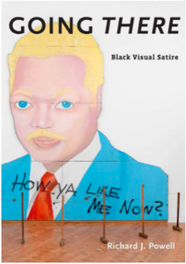 Powell, Richard J. Going There: Black Visual Satire. Cambridge, MA and New Haven, CT: Hutchins Center for African & African American Research in association with Yale University Press, 2020.
Powell, Richard J. Going There: Black Visual Satire. Cambridge, MA and New Haven, CT: Hutchins Center for African & African American Research in association with Yale University Press, 2020.
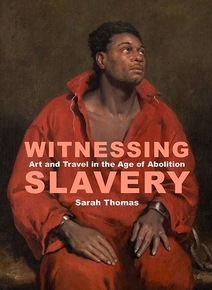 Thomas, Sarah. Witnessing Slavery: Art and Travel in the Age of Abolition. London and New Haven: Paul Mellon Centre for Studies in British Art in association with Yale University Press, 2019.
Thomas, Sarah. Witnessing Slavery: Art and Travel in the Age of Abolition. London and New Haven: Paul Mellon Centre for Studies in British Art in association with Yale University Press, 2019.
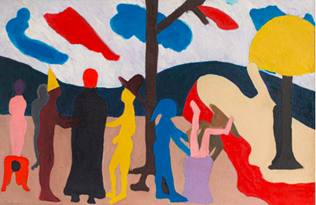 Tuite, Diana, editor. Bob Thompson: This House Is Mine. Waterville, ME and New Haven, CT: Colby College Museum of Art in association with Yale University Press, 2021.
Tuite, Diana, editor. Bob Thompson: This House Is Mine. Waterville, ME and New Haven, CT: Colby College Museum of Art in association with Yale University Press, 2021.
Bob Thompson, The Snook (The Sack), 1961, oil on canvas, 23 1/2 x 36 in. (59.7 x 91.4 cm). Collection of Andrew Nelson (© Michael Rosenfeld Gallery LLC, New York)
VanDiver, Rebecca. Designing a New Tradition: Loïs Mailou Jones and the Aesthetics of Blackness. University Park, PA: Penn State University Press, 2020.
Digital Humanities at the 110th Annual Conference
posted Feb 03, 2022

The upcoming Annual Conference this winter and spring will feature a number of sessions that discuss issues related to the digital humanities and art. See below for links to explore sessions that relate to these topics in the conference schedule.
See the rest of this year’s conference schedule online! Register for CAA’s upcoming conference and learn more at our registration page. After you register, sign into the app and create your own custom schedule using the tools and filtering options on the side (switch time zones in the upper left of the app: CST for in-person and your own time zone for virtual).
Sessions on Digital Humanities
Critical Cataloging Conversations in Teaching, Research, and Practice
VISUAL RESOURCES ASSOCIATION (VRA)
Friday, February 18, 2022
11:00 a.m. – 12:30 p.m. CST (12:00 p.m. – 1:30 p.m. EST)
Bridget Madden, University of Chicago
Dismantling the Patriarchal Canon: Foregrounding Women Artists and Patrons through Digital Art History
DIGITAL ART HISTORY SOCIETY
Friday, March 4, 2022
11:00 a.m. – 12:30 p.m. CST (12:00 p.m. – 1:30 p.m. EST)
Tracy Chapman Hamilton
Dana Hogan, Duke University
Mariah Proctor-Tiffany, California State University, Long Beach
Archival Imaginaries and Futurities in Contemporary Art from SWANA
Saturday, February 19, 2022
4:30 p.m. – 6:00 p.m. CST (5:30 p.m. – 7:00 p.m. EST)
Lara Fresko Madra, Cornell University
Kareem Estefan, Brown University
New frontiers: creating, collecting, preserving and displaying digital based art of Russia and Eastern Europe
Saturday, February 19, 2022
4:30 p.m. – 6:00 p.m. CST (5:30 p.m. – 7:00 p.m. EST)
Natalia Kolodzei, Kolodzei Art Foundation
The Living Catalogue Raisonné
CATALOGUE RAISONNÉ SCHOLARS ASSOCIATION
Saturday, February 19, 2022
9:00 a.m.– 10:30 a.m. CST (10:00 a.m. – 11:30 a.m. EST)
Joan Pachner
Marin R Sullivan, Sculptural Things
Digital Realms in Practice
Thursday, February 17, 2022
4:30 p.m.- 6:00 p.m. CST (5:30 p.m. – 7:00 p.m. EST)
Diverse Resources for New Media
Thursday, February 17, 2022
4:30 p.m.- 6:00 p.m. CST (5:30 p.m. – 7:00 p.m. EST)
Nadav Assor, Connecticut College
New frontiers: creating, collecting, preserving and displaying digital based art of Russia and Eastern Europe
Saturday, February 19, 2022
4:30 p.m.- 6:00 p.m. CST (5:30 p.m. – 7:00 p.m. EST)
Natalia Kolodzei
Kolodzei Art Foundation
Making Media Social: An Examination of Video and Television in the History of Political Activism of the 1970s
Thursday, February 17, 2022
9:00 a.m.– 10:30 a.m. CST (10:00 a.m. – 11:30 a.m. EST)
Corinna Kirsch, Stony Brook University
Brock Lownes, Stony Brook University
The Problem of Mapping Social Justice On The Social (Creative) Body In an Era Of NFT’s
Saturday, March 5, 2022
11:00 a.m. – 12:30 p.m. CST (12:00 p.m. – 1:30 p.m. EST)
Gale Elston, CUNY
(inappropriate) digital intimacies
Saturday, March 5, 2022
2:30 p.m. – 4:00 p.m. CST (3:30 p.m. – 5 p.m. EST)
Francesca Balboni, University of Texas at Austin



